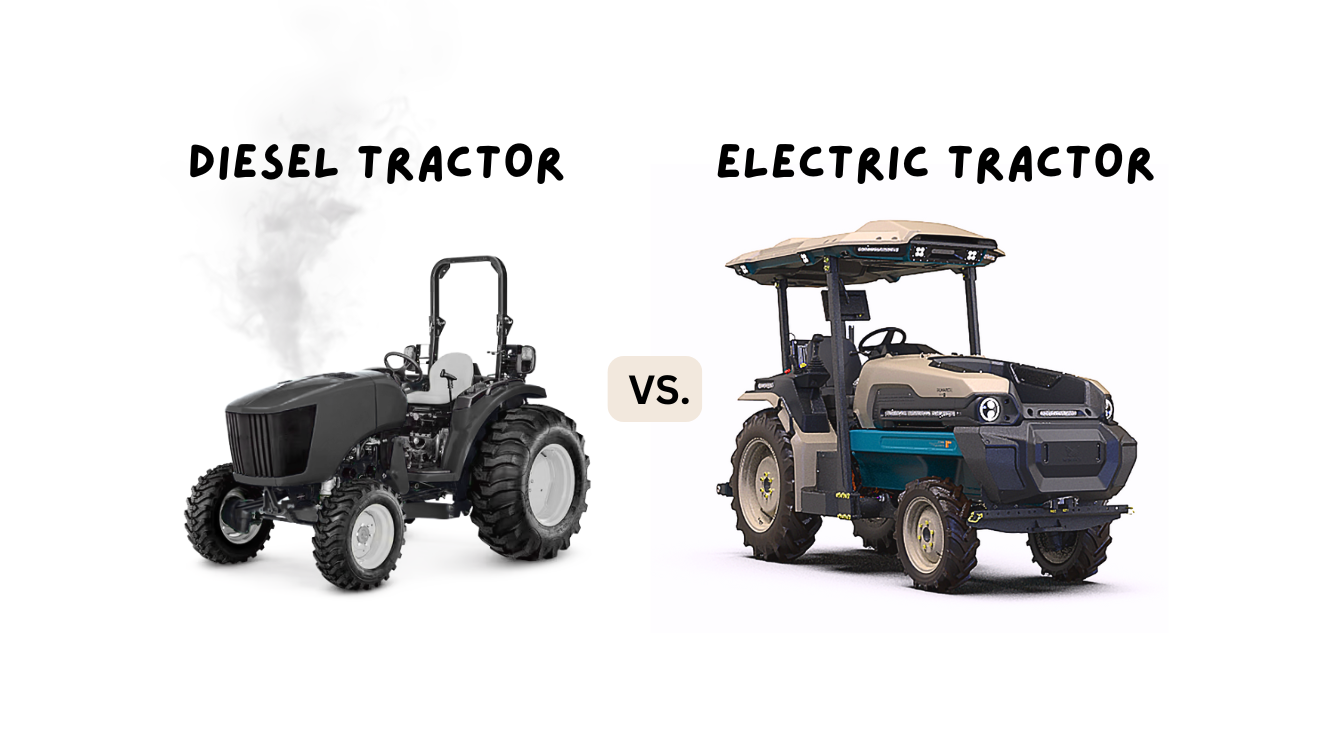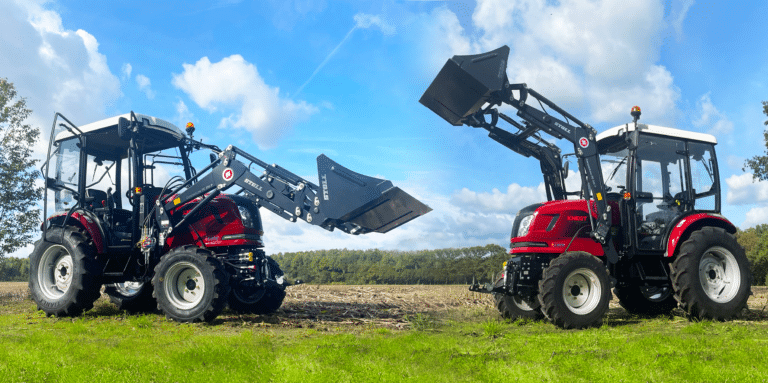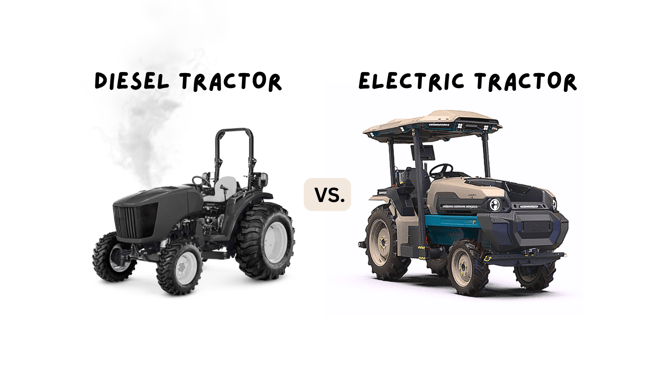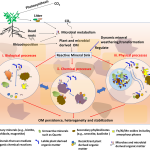Are you considering an upgrade to your farming equipment and wondering whether to go electric or stick with a diesel tractor? You’re not alone.
With technology advancing rapidly, the choice between electric and diesel tractors is becoming a hot topic in the agricultural community. Each type has its own set of benefits and challenges, and choosing the right one can make a huge difference in your farm’s efficiency and sustainability.
We’ll dive into the pros and cons of electric and diesel tractors, helping you make an informed decision that aligns with your farming needs. Stick around, because what you discover might just revolutionize your farming practices and lead you to a smarter, more cost-effective choice.
Environmental Impact
When considering tractors, the environmental impact is a crucial factor. Electric tractors and diesel tractors have different effects on the environment. Understanding these differences helps in making informed decisions for farming needs.
Electric Tractors And Their Benefits
Electric tractors produce zero emissions. They help reduce air pollution significantly. They operate quietly, minimizing noise pollution in rural areas. Renewable energy sources can power electric tractors. This lowers the carbon footprint even further.
Diesel Tractors And Their Drawbacks
Diesel tractors emit greenhouse gases. These gases contribute to global warming. The noise from diesel engines disrupts wildlife. Diesel fuel production impacts the environment negatively. Spills can harm soil and water ecosystems.
Long-term Environmental Considerations
Electric tractors support sustainable farming practices. They align with global efforts to combat climate change. Diesel tractors require regular maintenance. This involves oil changes and disposal of hazardous materials. Considering long-term effects is essential for eco-friendly farming.

Cost Efficiency
Evaluating cost efficiency is crucial for farmers choosing between electric and diesel tractors. Both options have distinct financial implications. Understanding these can help farmers make informed decisions.
Initial Purchase Price
Electric tractors often come with a higher initial cost. Advanced technology and battery systems contribute to this. Diesel tractors typically have a lower upfront price. This makes them more accessible for small farm operations.
Fuel And Energy Costs
Electric tractors offer lower energy costs over time. Charging batteries is cheaper than buying diesel fuel. Diesel prices fluctuate, impacting long-term expenses. Electric tractors provide more predictable energy costs.
Maintenance Expenses
Diesel engines require regular maintenance. Oil changes and filter replacements are common. Electric tractors have fewer moving parts. This reduces maintenance needs and costs. Long-term savings can be significant.
Resale Value
Diesel tractors often have stable resale values. Many buyers still prefer diesel engines. Electric tractor resale values are growing. As technology advances, these values may increase.
Subsidies And Incentives
Electric tractors may qualify for government subsidies. Incentives can reduce the overall cost. Diesel tractors usually lack these benefits. It’s essential to research available programs.
Performance And Power
Choosing between electric and diesel tractors involves understanding their performance and power. Each type of tractor has unique attributes. These can affect efficiency, durability, and capability in different farming scenarios. Let’s explore the performance and power of both options.
Electric Tractors: Quiet And Efficient
Electric tractors offer a quieter operation. This makes them ideal for farms near residential areas. They provide smooth power delivery, which ensures consistent performance. Electric motors have fewer moving parts. This results in less wear and tear over time.
Diesel Tractors: Proven And Powerful
Diesel tractors have long been the backbone of agriculture. They are known for delivering robust power and torque. This makes them suitable for heavy-duty tasks. Diesel engines are reliable and can handle tough terrains. They provide the force needed for plowing and tilling large fields.
Comparing Performance Metrics
Electric tractors excel in energy efficiency. They convert more energy into usable power. Diesel tractors, on the other hand, have a higher power output. This is beneficial for demanding tasks. Each type of tractor has strengths that cater to different farming needs.
Adaptability To Different Farming Tasks
Electric tractors are great for light and medium tasks. They work well in environments where noise reduction is crucial. Diesel tractors are better suited for heavy lifting. They handle large-scale operations with ease. Choosing the right tractor depends on the specific tasks on your farm.

Maintenance And Longevity
Choosing between electric and diesel tractors involves assessing maintenance and longevity. These factors greatly influence the overall cost and efficiency of your tractor. Understanding maintenance needs and expected lifespan can guide your decision.
Maintenance Requirements
Electric tractors often have fewer moving parts. This simplicity reduces maintenance needs. Routine checks focus on battery health and software updates. Diesel tractors require regular oil changes and filter replacements. Their engines need frequent inspections to prevent breakdowns.
Longevity
Electric tractors can last longer due to fewer mechanical issues. Their batteries may need replacing after several years, but the motor remains durable. Diesel engines are known for their robust performance. Proper maintenance can extend their lifespan significantly.
Cost Of Maintenance
Electric tractor maintenance is usually less expensive. Fewer parts mean fewer replacements. Diesel tractors may incur higher costs. Regular servicing adds up over time. Consider these expenses when planning your budget.
Electric tractors produce zero emissions during operation. Diesel tractors emit pollutants, affecting air quality. Maintenance practices also differ in environmental impact. Electric options contribute less to environmental degradation.
Resale Value
Electric tractors may have higher resale value. Buyers seek efficient and eco-friendly options. Diesel tractors remain popular for their power. Their resale value depends on condition and market demand.

Conclusion
Choosing between electric and diesel tractors depends on your needs. Electric tractors offer quiet and clean operation. Diesel tractors provide power and longevity for heavy tasks. Consider the long-term costs and environmental impact. Electric models might save you money on fuel.
Diesel tractors are often more robust for tough terrains. Evaluate your farm size and budget. Both options have strengths. Make an informed decision for your farming success.



